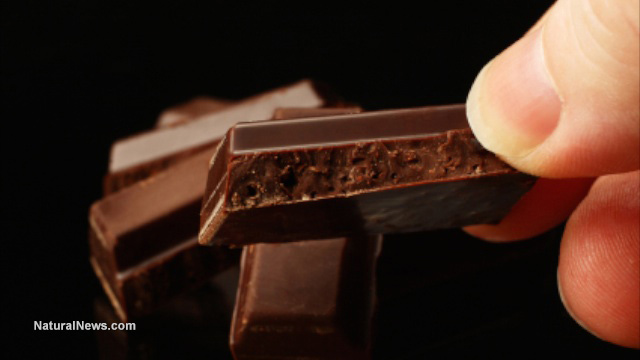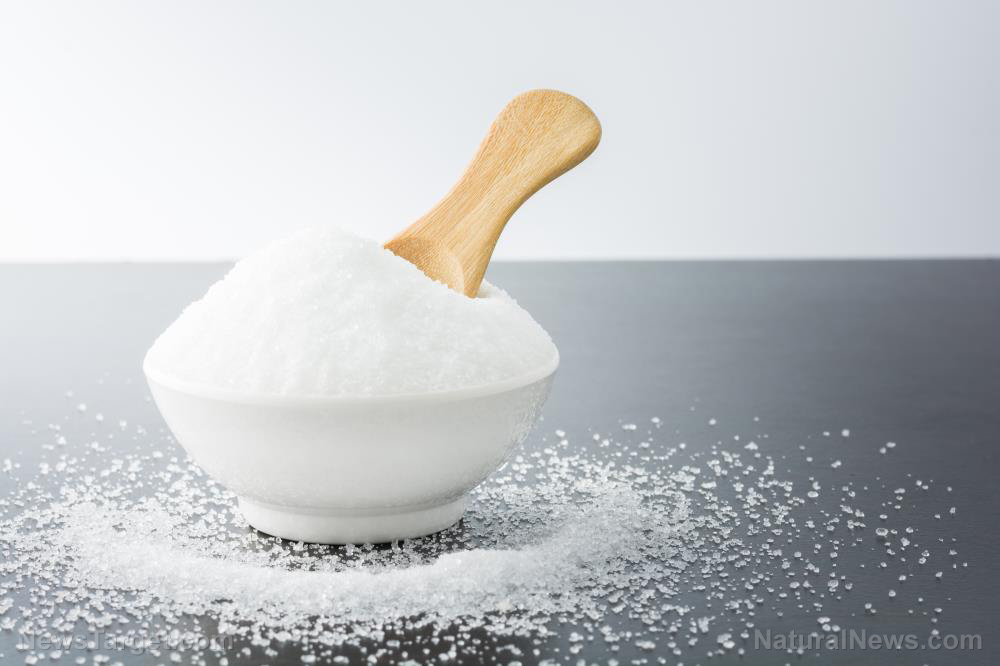Dark chocolate may be nature’s perfect superfood
02/08/2019 / By Isabelle Z.

Many of us are willing to suffer through eating some of the less-delicious foods out there in the name of good health – Brussels sprouts, anyone? – but there are a few cases where we really can have it all, and dark chocolate is one of those foods that tastes great while being remarkably beneficial. In fact, it may just be nature’s perfect superfood.
Interestingly, chocolate has been treated more like an indulgence in recent times, something that people eat as a pick-me-up on a bad day or as a reward or celebration. But that idea is beginning to shift as more studies emerge indicating its tremendous power in enhancing your health in several important ways.
Brain health
For example, some studies show that dark chocolate might make you smarter. That’s right: Seniors who consumed dark chocolate in a study earned significantly higher scores on cognition tests and had a reduced risk of cognitive decline. Meanwhile, double-blind studies have shown that it increases processing speed, working memory, language and executive function in people with Mild Cognitive Impairment – a significant finding when you consider that no drugs currently exist to effectively treat the condition. It’s not just the elderly who can benefit; college students who ate dark chocolate noted significantly higher scores on memory tests.
Heart health
Heart health is a top concern today given its prevalence and the unhealthy lifestyles of modern times, but now researchers are finding that dark chocolate can be a lifesaver in this regard. When studies showed that the flavanol in chocolate raised nitric oxide levels, helping blood vessels dilate, scientists started to take a closer look into its heart benefits, and there are plenty. It can prevent coronary heart disease, stroke, and cardiovascular disease, in addition to protecting you from dying of a heart attack.
Dark chocolate can lower blood pressure significantly, even among those who are obese. It improves the elasticity of your arteries and blood flow, in addition to benefiting atherosclerosis and cholesterol levels.
Mood
That joy you derive from eating chocolate doesn’t just come from its good taste; dark chocolate alleviates anxiety, stress and negative mood by producing feelings of contentedness and calmness. In studies, those who were given dark chocolate had lower levels of stress hormones like adrenaline and cortisol when exposed to stress. It can also improve mental fatigue and give your brain an energy boost.
Diabetes
It might sound counterintuitive to say that diabetics should eat chocolate, but when approached correctly, there are some important benefits. Dark chocolate actually improves your blood sugar by lowering your insulin resistance significantly while giving insulin sensitivity a boost. It also helps those who are obese to see their blood sugar levels drop. The caveat here is that dark chocolate should not be consumed by diabetics as part of a dessert; it’s important to seek as pure of a variety of dark chocolate as possible, which means it will have a bitter taste.
Choosing the right dark chocolate
If you want to consume dark chocolate for its health benefits, you’ve probably already figured out that a slice of chocolate cake smothered in frosting isn’t the way to go. But even if you’re buying a bar of dark chocolate at the store, not just any type will do.
You need to opt for varieties that are low in sugar and high in cocoa. The most nutritious dark chocolates also happen to be the most bitter, so start with 70 percent and work your way up to 85. You could enjoy a square of dark chocolate as is, or you might also consider melting it and dipping other antioxidant-rich foods in it, like strawberries or blueberries.
Packed with flavonoids, polyphenols, and catechins and rich in antioxidants, dark chocolate is as nutritious as it is delicious, so go ahead and place it right near the top of your health food shopping list!
Sources for this article include:
Tagged Under: antioxidants, brain health, Chocolate, dark chocolate, diabetes, food is medicine, grocery cures, heart health, mind body science, mood, nutrients, prevention



















